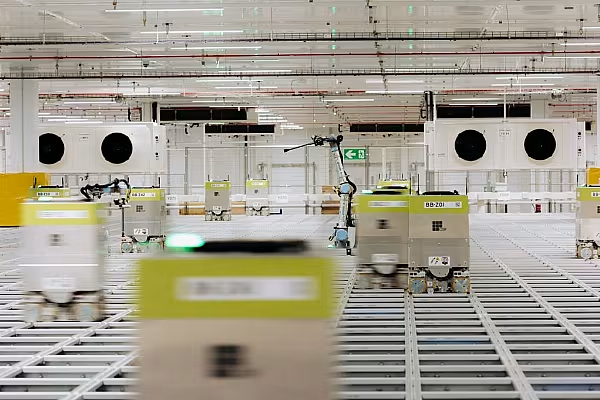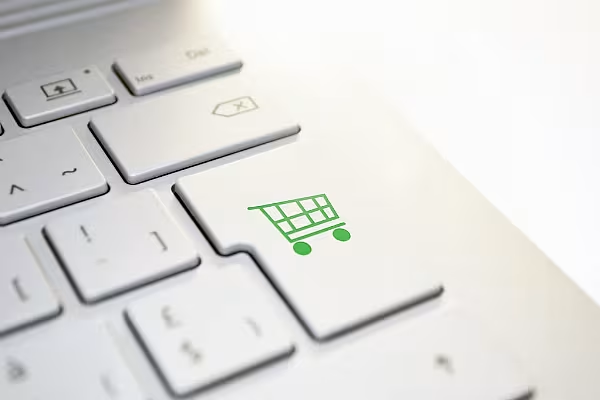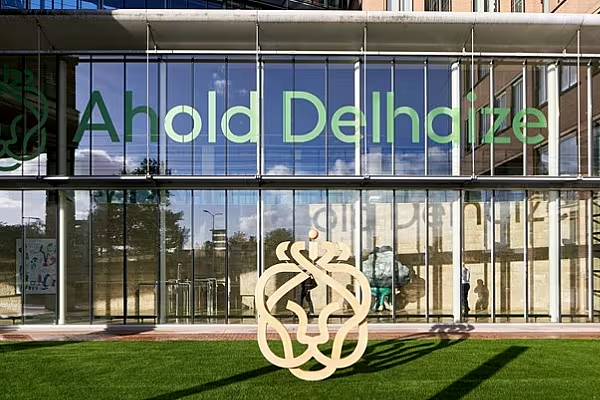Maybe it was a result of the below-average temperatures, or perhaps due to increasing numbers of shoppers choosing to avoid the festive rush, but one thing's for certain: Christmas 2017 saw a definite spike in online grocery sales.
According to Kantar Worldpanel's market-share figures for the 12-week period to 31 December 2017, released last week, online supermarket sales enjoyed their biggest-ever Christmas, rising 4.9% year on year.
The biggest pure-play retailer in this space, Ocado, which recently toasted a high-profile link-up with Groupe Casino, comfortably outpaced the wider online market, increasing its sales by 8.4% over the period. This means that Ocado now accounts for 1.3% of the grocery market in the UK, making it the country's third fastest-growing retailer after Aldi and Lidl, albeit off a much lower base.
Nielsen, too, reported that online sales played a 'key part' in UK shopping habits in December, with some 18% of households shopping online for groceries in the four weeks to 30 December. According to the research firm, online sales grew by 5% in the period, resulting in the channel hitting a high of 6.4% of all grocery sales in the final quarter.
According to Nielsen's Mike Watkins, “[The recent festive period was a] multichannel Christmas, and some shoppers will have planned an online grocery shop for around the 20th, followed up by visits later in the week to the bigger stores, and then last-minute visits to smaller and convenience stores before and after the big day.”
In addition, the British Retail Consortium put online food-retail sales growth as high as 7.6% for the month of December, above the three-month average of 6.2%.
Store By Store
Across the major retailers, the message is the same: online was a key growth area in the run-up to Christmas.
Market-leader Tesco posted 5% growth in online grocery sales in its third quarter of the year, with the group's online grocery business posting a 'record' Christmas period, according to its interim results.
At Sainsbury's, online sales went up by 8.2% in the third quarter, with the channel accounting for as much as 20% over Christmas Week. As chief executive Mike Coupe pointed out, on Friday 22 December – its biggest sales day yet – the retailer "delivered an online grocery order to customers every second".
Morrisons' Christmas trading statement reported a 50% increase in sales of its Food to Order party-food range, which is largely driven through the retailer's online channel, while Waitrose's online business reported 'the biggest week of sales in its history' during Christmas Week. M&S, too, reported increased online sales in the weeks leading up to Christmas.
What Now?
So, what happens next? For the UK's major grocers, growth in online has been a long time coming. Tesco first launched an online shopping service in 1996, which, in digital terms, is aeons ago, while it took Ocado 15 years to post its first annual profit, which it recorded in 2015. Is the UK consumer now, finally, about to embrace online?
In ESM's view, the online sales growth experienced by the major retailers is an indication of the potential inherent in the channel around key selling opportunities. Christmas is the most obvious one, with the inclement weather no doubt providing a boost to those toying with the idea of shopping online, but perhaps more could be done around other major dates in the calendar: Easter, for example, or Halloween. Exclusive online offers and members-only promotions could be used to drive sales – if, that is, retailers are fully committed.
After all, online can be a very margin-intensive business – a reason why online grocery hasn't gained as much traction as other retail categories. The coming year will tell a lot as to how serious the big players are about this increasingly vital channel.
© 2018 European Supermarket Magazine – your source for the latest retail news. Article by Stephen Wynne-Jones. Click subscribe to sign up to ESM: The European Supermarket Magazine.














